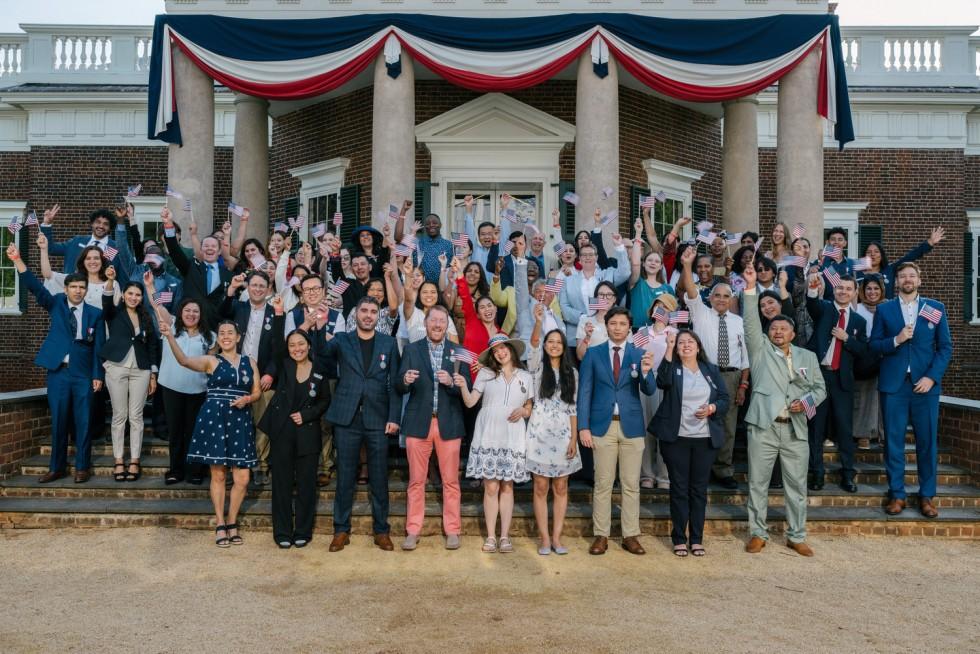 – On July 4, 2025, Thomas Jefferson’s Monticello hosted its 63rd annual immigration and naturalization ceremony, swearing in 74 new American citizens from 40 countries across five continents. Their stories remind us of the promise of the Declaration of Independence we celebrate in this 249th anniversary year.
– On July 4, 2025, Thomas Jefferson’s Monticello hosted its 63rd annual immigration and naturalization ceremony, swearing in 74 new American citizens from 40 countries across five continents. Their stories remind us of the promise of the Declaration of Independence we celebrate in this 249th anniversary year.
Jefferson would have approved. The ability to leave one’s country and join another was, he wrote in 1817, a “natural right, like that of our right to life, liberty, … and the pursuit of happiness” he enumerated in the Declaration decades before.
Keynote speaker Ken Burns captured the spirit of the day by noting that in 1776 — when kings ruled in France and Britain, a Czarina in St. Petersburg, an emperor in China, a Sultan in Constantinople, and a Shogun in Japan — men in Philadelphia envisioned a system and wrote words in a Declaration that “turned the world upside down.” And out of the Revolutionary War, Burns said, America “came to be about the noblest aspirations of humankind.”
Judge John Charles Thomas, the first Black American appointed to Virginia’s Supreme Court, declaimed the Declaration’s preamble to a roaring crowd. Judge Michael Urbanski noted these new citizens were taking the same oath new Americans had pledged since President Jefferson signed the Naturalization Act of 1802.
Like many American leaders since, Jefferson believed immigration made our country stronger, fairer, richer, and truer to its ideals.
A young woman recounted fleeing Afghanistan in 2020 for “safety, freedom and dignity.” A 35-year-old woman from Peru said she waited decades, like so many others, to become an American. An Irishman became a U.S. citizen “to have my voice count as a parent, neighbor and citizen.” An older woman from Syria simply danced with joy.
As those who witness naturalization ceremonies know, they are powerful reminders to Americans born in this country of why we should value it. In 1915, President Woodrow Wilson said to new citizens in Philadelphia: “if some of us have forgotten what America believed in, you…imported in your own hearts a renewal of the belief…. If I have in any degree forgotten what America was intended for, I will thank God if you will remind me.”
In the century that preceded the Declaration of Independence, almost everyone in the 13 American colonies – whether of European or African descent – had arrived there from someplace else, often within two generations or less. Even Native Americans uprooted often, sometimes in response to European migrations. Since 1776, the United States has constantly been reborn by drawing in populations from around the world, breathing life into the country’s motto, e pluribus unum.
As America moves into the 250th anniversary of the Declaration of Independence in 2026, we ought to learn more about our country’s plural origin story, and the ways we became one, born from many. Our founding ideals have endured the test of time precisely because of the recommitment we saw on Jefferson’s mountaintop on July 4: a ceremony that spurred us all to renew our oath. Our new and varied fellow Americans breathe fresh life into those ancient ideals and remind us of the relevance they hold for our world today and for future generations.
To learn more about the Declaration of Independence, download these materials at .



